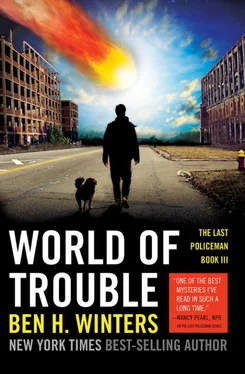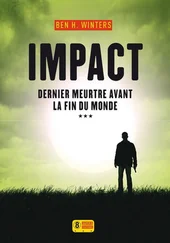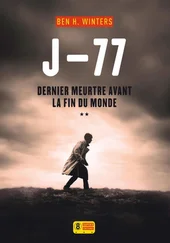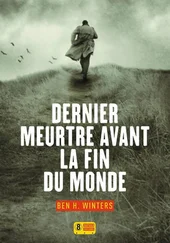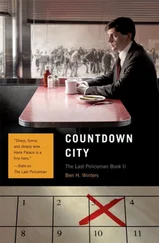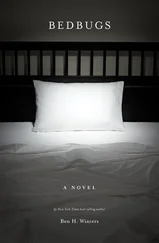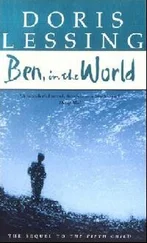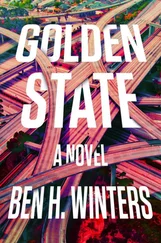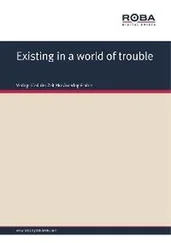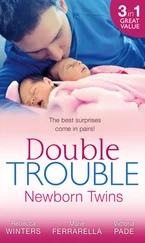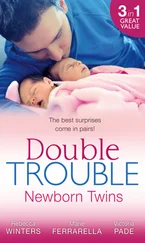Not so, though. It isn’t so.
It’s out there. Closer, now. Closer than the sun; closer than Venus. Our nearest neighbor, the author of our destruction. Accelerating in accordance with Kepler’s third law: the closer it gets, the faster it comes. A ball player hurtling for home, a horse breaking into a gallop when it smells the barn.
I’ve got to get out of here.
I climb down the ladder and scoop Houdini up under my arm, carry the poor sick dog uncomplaining, struggle him up to the loft and lay him down. I kick out one of the small windows easily, one fake karate-chop kick with the strong side of my body. Before I can think about it too much I toss the dog out the window, and he barks as he falls end over end, his body catching as I had planned it on the bank of shrubs below. He scrabbles on the uneven surface of the hedgerow, tumbles forward and lands with a whomp in a patch of mud. Looks up at me, confused.
I toss a salute down to the dog, light another match from the matchbook, and set the hay on fire.
* * *
It happens a lot faster than I thought it would, old dry hay and wooden timbers, much faster than I in my rashness and desperation had really contemplated. One small fire touching off new small fires in all directions, small fires growing together and becoming large, dancing up, reaching for the rafters. I retreat, stumble backward, miss the ladder and roll down from the loft onto the hard dirt floor, landing flat, flipping over and moving as fast as I can away from the growing fire up there, my black shoes pulling through the barn-floor mud.
Immediately I regret my plan. I crouch in a corner staring up in horror, watching the burning embers float over the edge of the loft, float and then rain. The fire is literally raining down, sending sparks and small twirling pieces of hay over the edges of the loft. The black and gray of the midnight barn has erupted in red, and after all this was a mistake—better to starve and die in the barn than burn. I race to the door and pound on it hard, the heavy wooden beams thudding against my fist, while the floor of the barn turns to fire all around me, new gouts of flame, now it’s like hell’s floor, patches of burning ground on all sides.
The heat is crowding in, splinters tumbling down from the roof, the roof beginning to crack above me. If it’s going to work, if anyone is going to see it, they’ll see it now—it will get no brighter, I don’t see how. It’s a furnace in here, I’m here in a furnace. In the last instant, I grab like a maniac at the handle of the barn door, pulling, knowing it’s useless but pulling, and the pain on my hands is instant and intense and scalding, and I hear this weird distant screaming—a screech, a call, a cry. Is it me? Is that me screaming? I think that it is, I think I’m screaming.
There is no strange swim back up from unconsciousness this time, no sneaky dreams of Nico. I’m just awake, looking from left to right in a small warm room. I’m on a bed. The room is beige, off-white. A wooden door. The bed has a quilt on it, lovely and plain.
The first thing I do is cough. Taste smoke and ash in my throat. I cough again, louder, violently, my body buckling upward, cough so hard and so loud that my stomach starts to ache. When I have recovered, managed to take three normal slow breaths, I realize that I am still dressed, T-shirt and shoes and long pants. Fully dressed under the covers like a little kid whose parents carried him, sleeping, in from the car.
I cough one more time, look around for a glass of water and find a pitcher and a cup. I pour myself a cup and drink it, then pour the rest and drink that, too. It’s a bedroom. Wooden bed frame and wooden nightstand and four undecorated walls. Plain white muslin curtains, pulled back from the single plain window and tied with twine. I can taste smoke inside my lungs, I feel heavy with it, like there was a fire inside my mouth and esophagus that was doused with thick wet foam. There is also a new nasty pain on the palms of my hands—I look down and see that both hands are thickly bandaged, mummy hands. Beneath the bandages, they burn and sting. I groan, try to roll my body slightly, one way and then the other, shift out of the discomfort. It feels like I should probably be dead by now.
When my grandfather said “Dig a hole” he was in hospice, at the very, very end, the absolute last thing he said before he died, the last event of his life. I was sitting beside him waiting, as we had been waiting for months, more or less. Grandfather’s breaths rolling in and out on rusty wheels, in and out, each one emerging with more difficulty than the last. His eyes staring straight up at the ceiling, his cheeks hollowed out, body twitching. Neither one of us were churchgoers, but I felt that as the responsible adult I needed to ask: did he want me to get someone? “Someone?” he said, even though he knew what I meant, but I pressed on, fulfilling my obligations, trying to get everything down according to procedure. “Someone,” I said. “A priest. To do last rites.” He laughed, with effort, a low, gasping chuckle. “Henry,” he said. “Dig a hole.”
I shift on the bed. It feels better now—marginally better. I can move.
There’s my sport jacket. Folded nicely at the foot of the bed. I stand up, waver a little, unfold the coat and slip it on. My little treasure trove is still in the inside pocket: The picture of young Nico. The butt of the American Spirit. The plastic fork. My notebook, nearly full. Only thing missing is the SIG. Everything else still in its place.
I pick up the jug and tilt it back and swallow the last drops of the water.
There’s no mirror in the room, no pictures, no paintings. The Casio says 5:45, but the information seems abstract; incomplete. Five forty-five when? How long have I been under? It’s an uncomfortable relationship you develop with sleep, at a time like this, it feels like every time you close your eyes you could wake up on the last day of the world.
I get up and out of the bed, relieved to find that I can walk with only a little difficulty. I cough again on the way to the door, try the handle and find it locked from the other side, as I had a feeling it would be—but as soon as I rattle it, someone cries out on the other side.
“He’s awake!” A woman’s voice, relieved, joyous even. “Praise God! The boy is awake.”
The boy. Is that me? A scrape of a chair, then another scrape. Two people out there, sitting in the hallway, waiting for me. A vigil. The second voice I recognize.
“Be still. Stay.” Old man, thick neck, beard. The creak of his boots approaching the door. I hear the lock click open, and I step back, my heart tightening. I remember his hands at my back in the cornfield, shoving me forward. The door sneaks open, letting in a sliver of light from the hallway. He is there, my assailant from the roadway, black coat, large body, just outside the door.
It’s the voice of the woman, though, that travels in. “Friend,” she begins. “We must ask. Are you ill?”
“I—” I stand in the quiet room, confused. Am I ill? Obviously, I am not well. I have been burned. There is smoke in my lungs. I have been kicked by a horse, and my forehead is split. I am hungry, and exhausted, and worn. But am I ill?
“Friend?” she says again, the voice of a woman in her early old age, firm and maternal and insistent. “You must tell us. We will know.”
I stare at my side of the door. “I’m sorry,” I say. “I don’t understand.”
“She means to ask whether you suffer from the plague.”
The old man’s words are slow and purposeful. He wants to make sure I get his meaning. But I don’t. I don’t think I do.
“Excuse me,” I say. “What?”
Читать дальше
